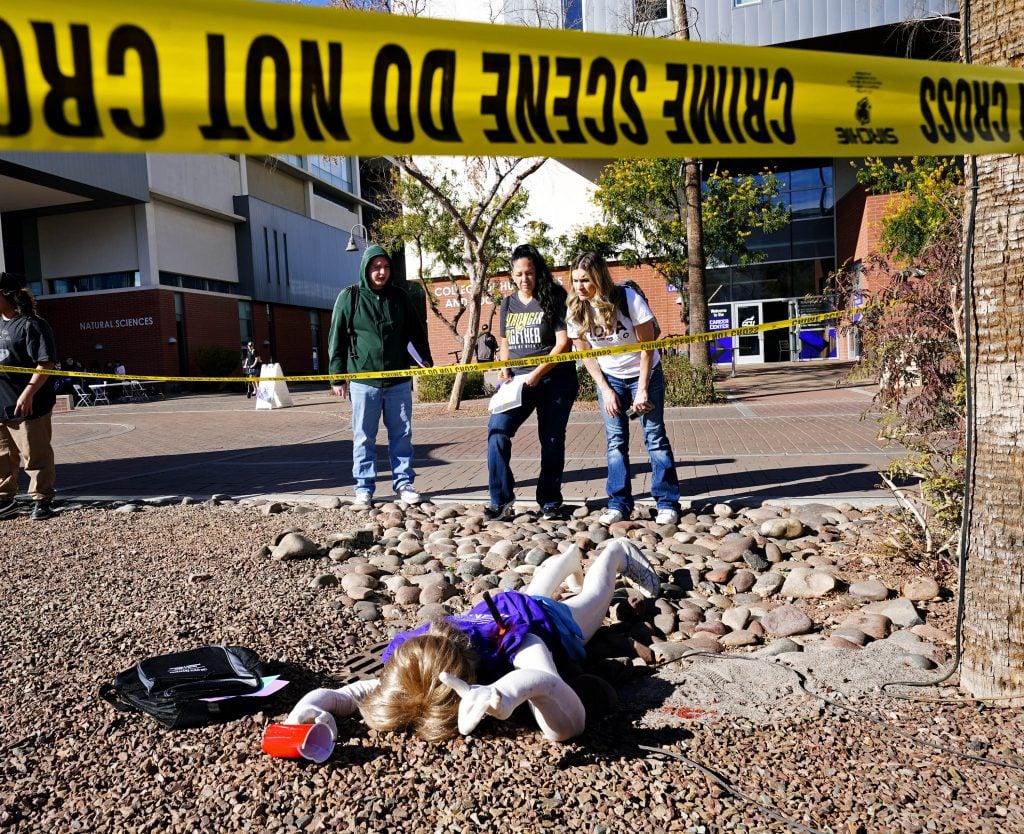
Photos by Ralph Freso / Slideshow
Could Grand Canyon University mascot Thunder be living a double life?
America’s Favorite Mascot on Tuesday became a fast suspect in the death of a young girl near the Promenade. The rumor? The victim knew his identity and faced the consequences.
Tun-tun-tun!
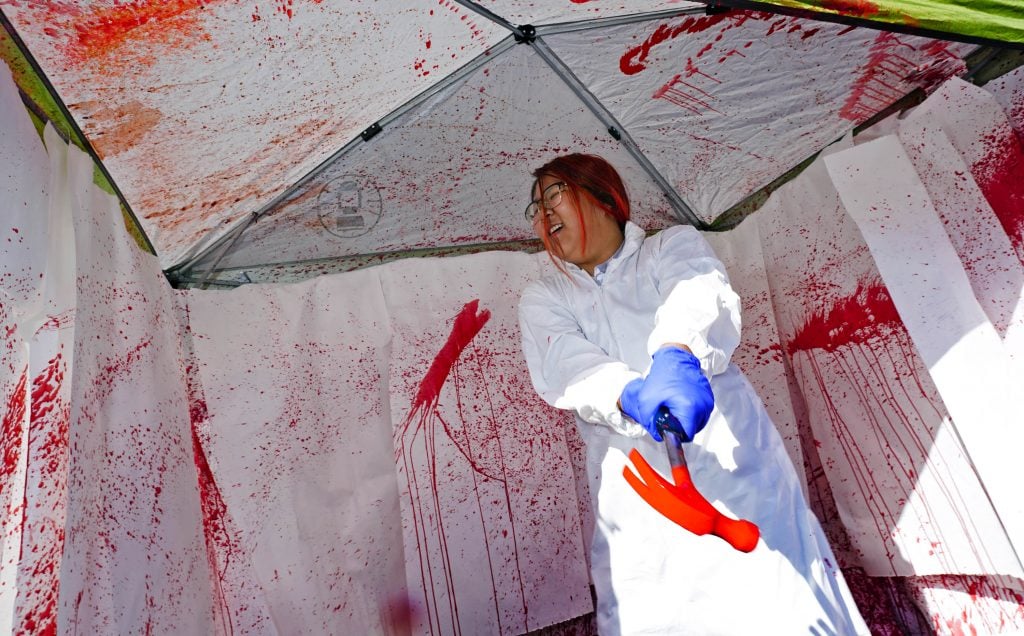
According to high school students, who seemingly stepped into their favorite “CSI”-type television crime show, their evidence suggests Thunder may be the killer. The victim, after all, lay face down, her hand stretched out in a Lopes Up.
The Crime Scene Challenge was part of GCU’s Forensic Science Day, which has showcased the university’s forensic science program since 2012 and, this year, hit an attendance of more than 1,400 high school and community college students from 40-plus schools.
Not only could students test their sleuthing skills in the Crime Scene Challenge, but they also could take crime lab van tours, visit the DNA lab, create a blood spatter pattern or two at the blood spatter booth, ask GCU students about their work with the Phoenix Police Department Lab in creating a shoeprint database, listen to talks, learn about handwriting analysis and more.
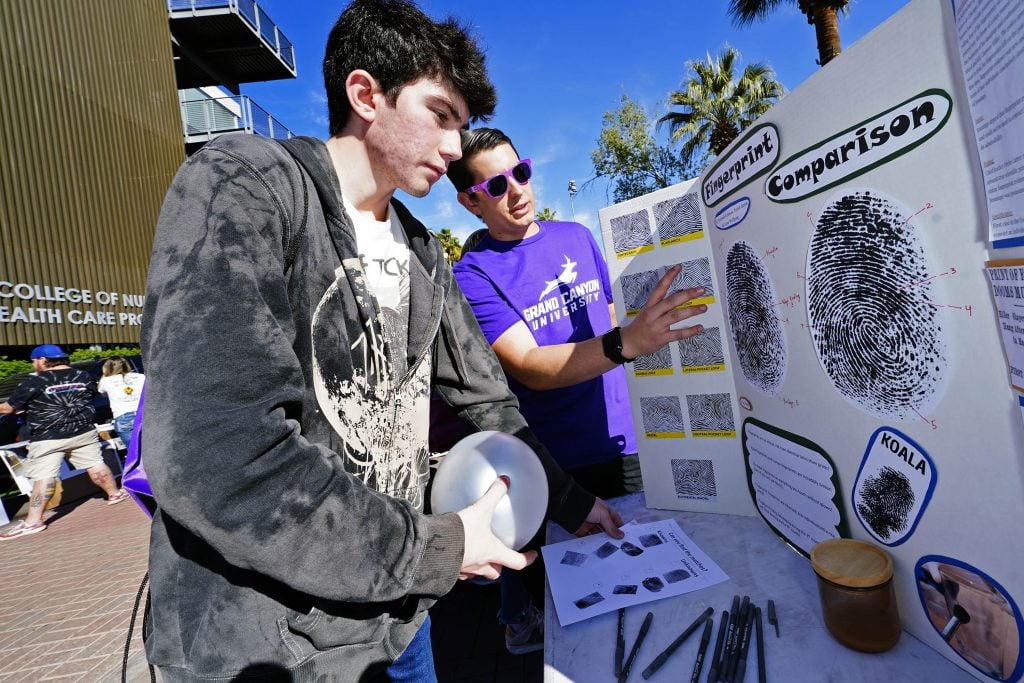
They also could see what projects GCU students have been working on for their capstone projects, which dispelled a lot of misconceptions about the field. The truth: It is far different from television series “Dexter.”
“The hardest part for our majors to overcome is understanding that this field involves far more science and mathematics than people expect,” said Dr. Melissa Beddow, associate professor of forensic science and the director of the forensic science graduate and undergraduate programs.

GCU seniors displayed poster boards and hands-on activities to help high schoolers solve crime scenes using forensic science techniques.
GCU alumna Nicole Luna, now a Maricopa Police Department forensic scientist, emphasized to visiting high school students the importance of initial scene documentation.
“The first step at any crime scene is taking as many photos as possible,” Luna said. “My capstone project at GCU was pivotal in preparing me for the real-world challenges I’ve faced since graduating in 2019.”
Added Chandler Police Department crime scene technician Quincy Stacker, who’s also a GCU alum, “Every site is different, and an investigation may only perform one of these evaluations once in their career, but be ready for anything.”
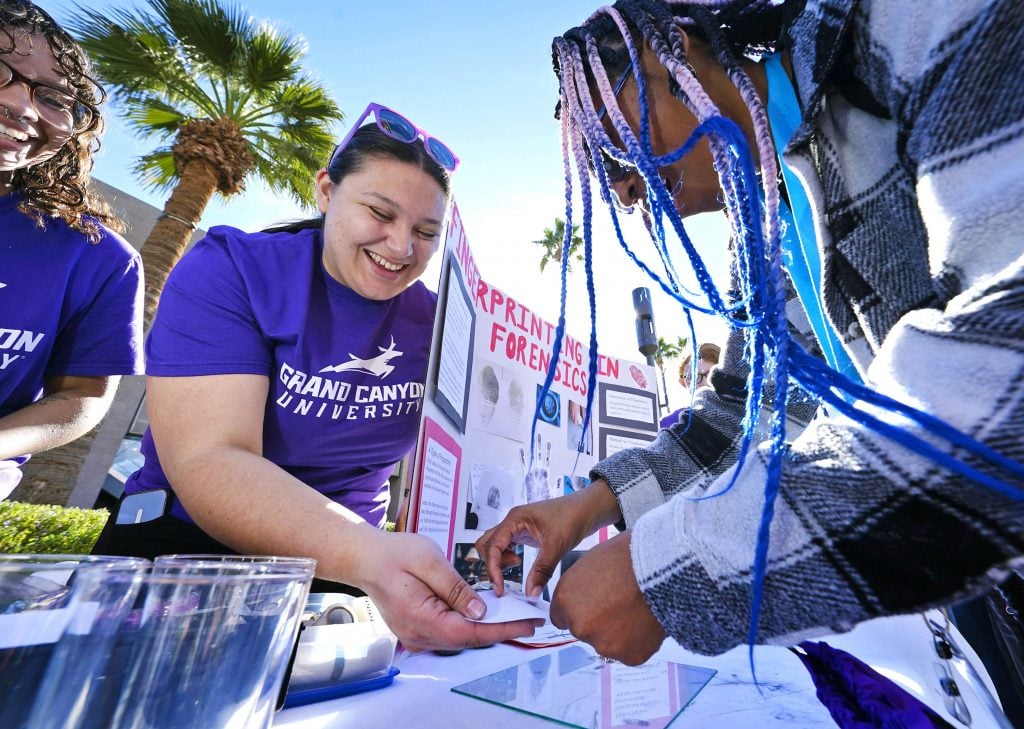
GCU students Alyssa Jenkins and Sofia Gregoris’ exhibit examined the trajectory of blood spatter, which can tell investigators where a suspect might have been standing, how tall they are and the weapon they might have been using. A whole team and process of trigonometry is involved.
“I chose this exhibit for my capstone to be interactive with the students and help them understand the importance of accuracy in this field,” said Jenkins, who hopes to work in medical death processing.
Senior forensic science major Remi Evans, who became passionate about toxicology after taking a course at GCU, said, “Toxicology is a great way to understand what chemicals do to the human body and bring awareness to the harms of drugs.
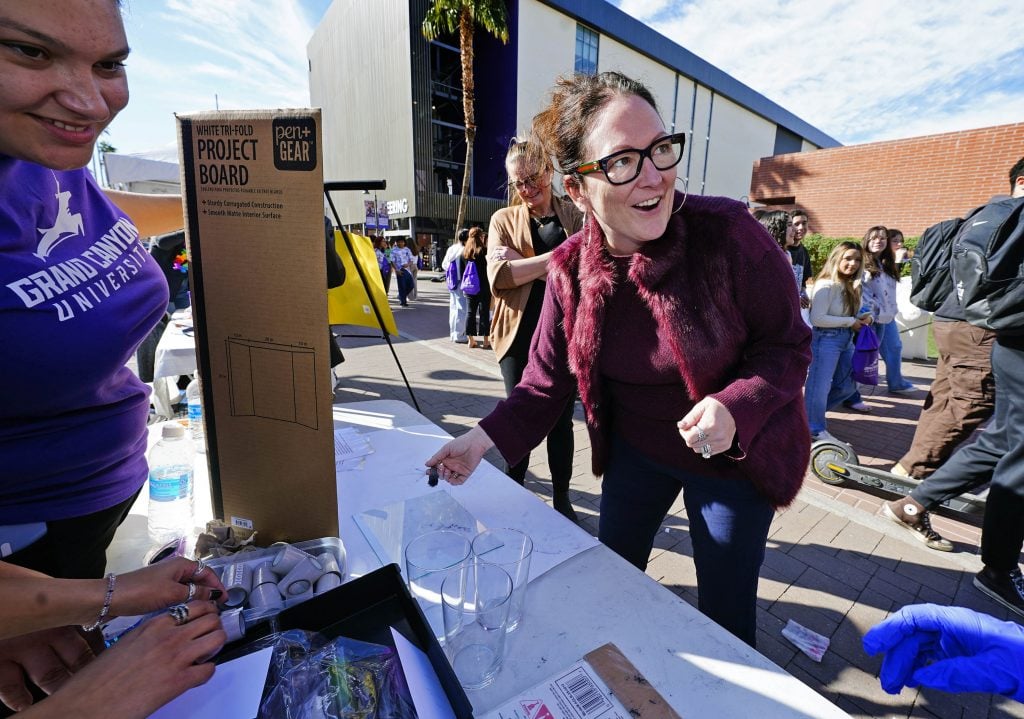
Her capstone project focused on the intersection of toxicology and public health.
The capstone projects and other exhibits left a strong impression on participants, such as Jeslyn Duarte of Tolleson Union High School.
“It’s clear you have to be really tough to work in this field,” said Duarte after watching fake blood flung from a hammer onto the side of a white tent to create blood spatter.
Mariel Nedrano, another Tolleson High School student who attended with her criminal justice class, said she is now intrigued by the field of forensic science. But she realized it is nothing like the movies.
One exhibit showed how investigators determined a shooter’s location: by aligning the entrance and exit wounds and funneling a rod through each hole. A senior GCU student handed a funnel to an attendee, allowing the high schooler to try the technique.
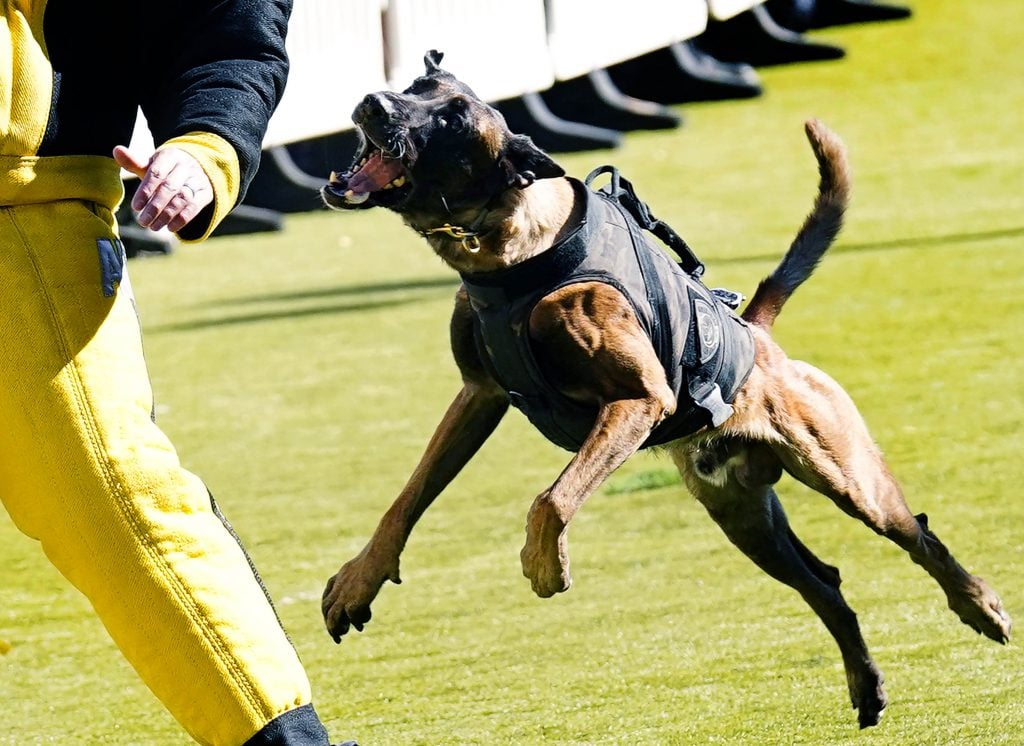
Back at the Crime Scene Challenge, a student from Snowflake High School in Snowflake, Arizona, noticed a crushed red Solo cup near the victim’s body.
“It must be Thunderade,” she said. “We need toxicology to confirm it.”
It became clear that Thunder’s involvement in the fictional crime was less about solving a case and more about sparking curiosity and engagement.
“We have seen a lot of students enroll in our program after attending Forensic Science Day,” Beddow said. “Opening up the campus to the community and showing that there is value in the education and affordability here, no matter one's background, proves everyone has a place here."
GCU student writer Leandra Lepp can be reached at [email protected]
***
Related content:
GCU News: GCU campus is perfect scene for Forensic Science Day
Cronkite News: Student gumshoes at GCU collaborate with Phoenix police to create shoeprint database
Forensic magazine: University's Forensic Science Day for high schoolers continues to inspire
GCU Magazine/GCU News: GCU goes online with forensic science program



































































